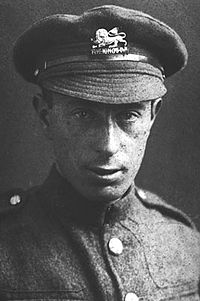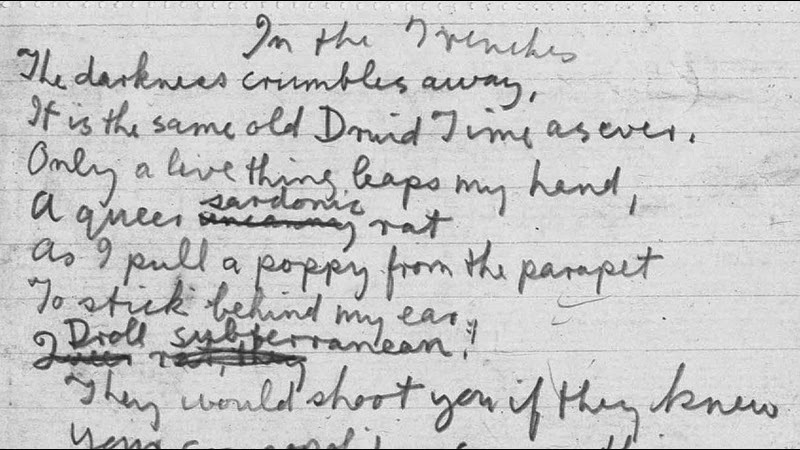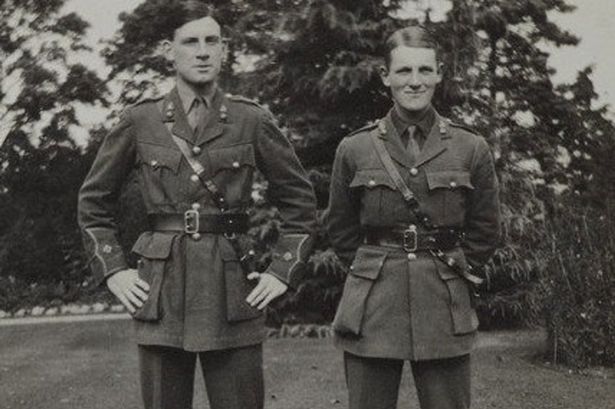As Desertion Mounts, It Turns to Mutiny.
Biting Words from the Poets of the Front.
Special to The Great War Project
(18 May) The on-again-off-again nature of the trench warfare on the Western Front, leaves plenty of time for contemplation among the troops deployed there.
“For those who fought in the trenches,” writes the historian Martin Gilbert, “there were many moments of contemplation and long periods of waiting with time to reflect on the purpose and consequences of the war.”

Poet Isaac Rosenberg, one of the best known poets of World War One.
At this moment in the war, during a short period of “rest and recuperation, the British poet Isaac Rosenberg,” reports Gilbert, “finished the first draft of a poem that described the course of a limber” – a hand pulled vehicle – “carrying barbed wire up to the front line on the Western Front.”
The wheels lurched over the sprawled dead
But pained them not, though their bones crunched.
Their shut mouths made no moan,
They lie there huddled, friend and foeman,
Man born of man, and born of woman,
And shells go crying over them
From night to night and now.
Earth has waited for them
All the time of their growth
Fretting for their decay:
Now she has them at last!
There are poems and essays, and letters, thousands of letters.

Rosenberg’s poem in his own hand.
Just one comes to his family from a young soldier who cannot fathom the astounding destruction he sees at the front lines.
“Nothing,” he writes, “will ever justify all the damnable waste and unfairness of this war. I only hope those who are left will never, never forget at what sacrifice those improvements have been won.”
The more the poets wait, the more they have the opportunity to refine their writing – making it sharper and more angry.
Reports historian Gilbert,..
“Poets who were in the trenches had begun to write with unprecedented bitterness.”
Siegfried Sassoon left with friend.
The well-known poet Siegfried Sassoon “caught a mood of hopelessness in his description of a soldier in a working party, piling sandbags along the parapet of his trench at night, eager to get back to his tot (his ration)” of rum, and sleep:
He pushed another bag along the top,
Craning his body outward; then a flare
Gave one white glimpse of No Man’s Land and wire;
And as he dropped his head the instant split
His startled life with lead, and all went out.
The anti-war sentiment is spreading among the soldiers as well, and not just in Russia where thousands of soldiers are abandoning their positions.
The number of desertions in France is steadily growing, turning into widespread mutiny. It’s beginning to threaten the entire French war effort.
By later in May, a century ago, troops are ignoring orders from their officers. Some 30,000 troops are abandoning their positions, seizing buildings, reports Gilbert, “refusing to go to the front.”
It is a dangerous moment for the French – and indeed for all the Allied powers – in what appears to be an endless fight in what has come to be known as the Great War.

